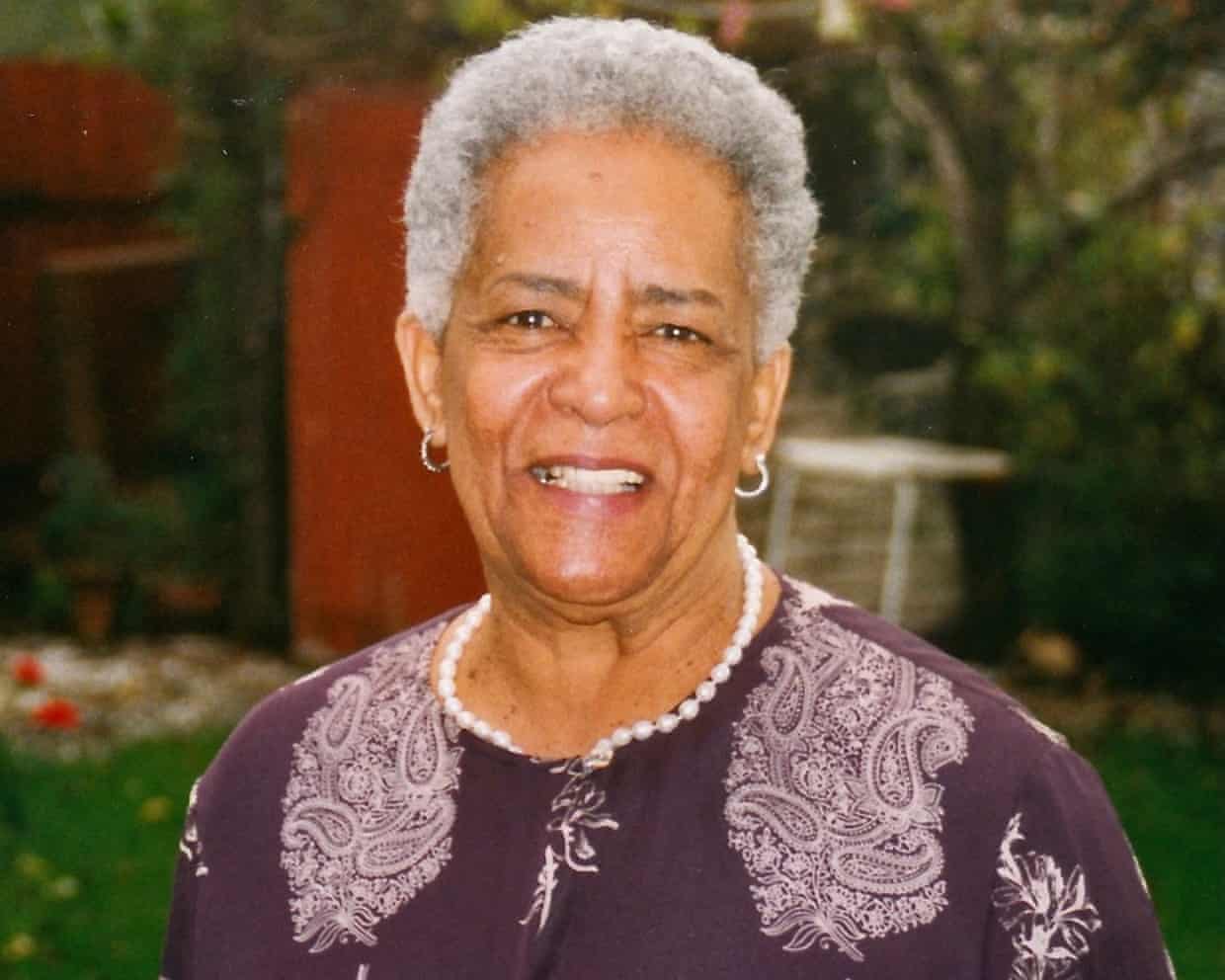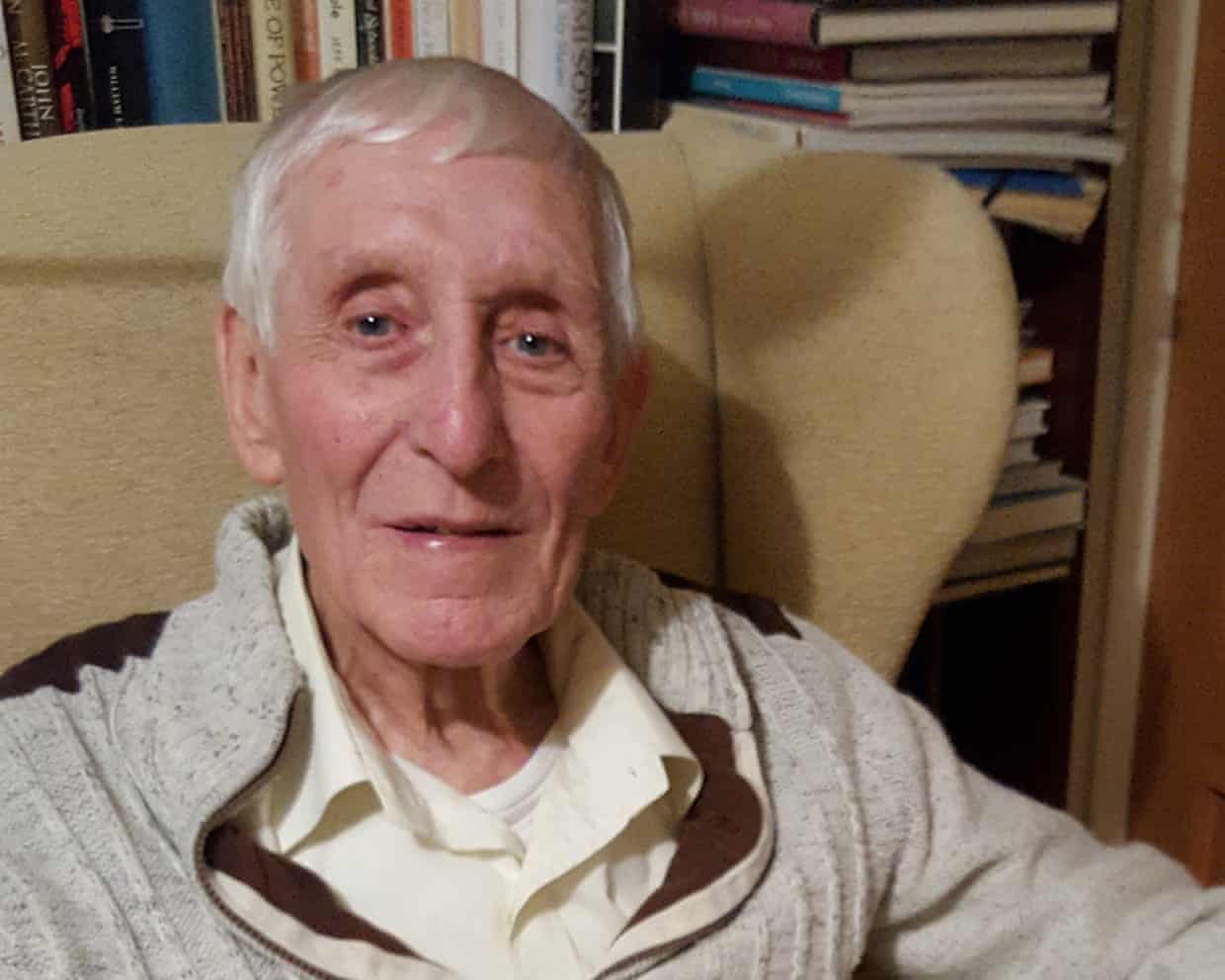Lady Howells of St Davids obituary

Like so many thousands of other young people of her generation, Rosalind Howells, who has died aged 94, left the Caribbean in 1951 with her head and heart filled with plans and dreams and intent upon her own hopes of a future possible professional career as a lawyer in Britain,Having arrived in London and recognised the grim everyday realities of inequality and discrimination that faced black people, she dedicated the rest of her life to doing something about it,She spent nearly half a century in south London working to improve the housing, education, health services and lifestyle of her community and then, on official “retirement”, went to the House of Lords in 1999,Tthe next 20 years she spent expounding her demands for equality to a wider audience, at Westminster and on international platforms in China, the Middle East and the US, seeking still to transform society and open the doors for others,She was not interested in rhetoric without reality, even less in tokenism.
“Representation means little if the door behind you is closed to others,” she said.Howells was tireless, forceful, loved and also feared.She could not say “no” to anyone who wanted help and would not accept “no” as an answer from the forces of authority.She wanted equality and justice for everyone, in the streets and in the courts, for the 13 young black people killed in the New Cross fire in 1981 and for Stephen Lawrence, murdered in 1993.It was she who became a spokeswoman for the Lawrence family, who rattled on the doors of government for response and reaction.
Her first job was in a public library, in Catford, south London, and she went back to college to train as a social worker,She worked for the London borough of Lewisham, helping young, single black mothers and then, in nearby Greenwich, she began confronting council policies across the range of social services,Most of her life was spent in community halls, classrooms, sports venues and committees, and her work was first recognised with appointment as OBE in 1994,She became the director of equal opportunities for the Greenwich Council for Racial Equality (1980-87) and she chaired the Lewisham Racial Equality Council (1994-97),Ros was born in St David, a parish in the south-east of Grenada, the daughter of Daphne George.
She came to regard Joseph Gibbs, a primary school head teacher who was active in municipal politics, as her father.He was a one-time minister for communications and known universally as “Uncle Joe” and in the family as “Papa Joe”.The family was staunchly Roman Catholic and Gibbs was appointed a papal knight.Ros was educated at St Joseph’s convent from 1942 until 1949 and assisted in the school before taking a passage to the UK, accompanying a niece.The two girls hoped to emulate Ros’s adopted sister, Hilda Gibbs (later Dame Hilda Bynoe), who had graduated as a doctor in London that year – and who would later, in 1968, become governor of Grenada, the first Grenadian in that post and the first female governor in the British Commonwealth.
Howells would be made a Companion of the Order of Grenada in 2009.Growing up in Grenada, Howells had known from childhood that education was the first goal.“Education is freedom and power,” she said once.“Any investment in education is a good one.” She was a governor of Avery Hill College for teacher training, which became part of Thames Polytechnic, and then the University of Greenwich (1985-97), and became the first female member of the court of governors of the university.
She was appointed chancellor of the University of Bedfordshire (2009-14) and she was a board member of the Windward Islands research and education foundation, the research institute for St George’s University in Grenada.She was a trustee of St George’s UK Trust, of the Jason Roberts Foundation for sporting opportunities in the UK and Grenada, and of the Stephen Lawrence Charitable Trust.At one stage, during a troubled period in Grenadian politics in the early 1980s, she served as Grenada’s deputy high commissioner in London.Howells was the first black female member of the former Greater London Training Board, established by the Greater London council to develop learning programmes.She was a lifelong member of the Labour party and active across a range of organisations, including the former West Indian Standing Conference, an umbrella organisation formed in response to the 1958 Notting Hill riots and operational until 2000.
She also worked with the Women of the Year committee and was a patron of Greenwich and Bexley hospice (2014-2016).In the Lords she was a member of the constitution committee (2001-04), the works of art committee (2009-14) and the social mobility committee (2015-16).She retired from the Lords in 2019.In 1955 she married John Howells, a librarian she met when working at Catford Library.They had two daughters, Anne and Amanda.
John died in 2004 and Amanda in 2011.She is survived by Anne, two grandchildren and three great-grandchildren.Rosalind Patricia-Anne Howells, Lady Howells of St Davids, community worker and politician, born 10 January 1931; died 14 October 2025

Gren Gaskell obituary
My stepfather Gren Gaskell, who has died aged 89, was a former miner who pulled himself up by his bootstraps to become a company manager with a passion for learning. In later life he published three books, including poetry and short stories, inspired by his experiences in the coalmining community.Born in Bulwell, Nottinghamshire, Gren, short for Granville, was the son of John, a miner, and Eliza. John died in a pit accident when Gren was four, and Eliza struggled to look after him and his five siblings. Experiencing hunger and cold as a child made him count his blessings as an adult, as he championed the rights of the less fortunate

It pays to support women’s health in the workplace | Letter
The Keep Britain Working review has shed valuable light on the number of working-age adults in the UK falling out of work due to ill health (Fixing Britain’s worklessness crisis will cost employers £6bn a year, report says, 5 November). As part of this, we should also specifically acknowledge the impact of women’s health issues and the role of employers in addressing these.In a report by the NHS Confederation in partnership with our foundation, we found that an estimated £11bn is lost annually due to absenteeism for gynaecological conditions alone. And earlier this year, our research found that 15% of women report having to change to part-time work and 14% have had to quit work due to women’s health conditions. Furthermore, 32% of women reported that they aren’t receiving enough support for their health issues from their employers

Review to look at role of mental health issues in UK youth unemployment
The role of mental health issues and disability in youth unemployment will be examined by the former Labour health secretary Alan Milburn as part of a review looking into rising inactivity among Britain’s young people.Nearly a million people aged 16 to 24 are not in education, employment or training, often described with the acronym Neets. Milburn will look at ways to avoid people becoming trapped as Neets and the findings will be published in the summer.The government announced the review four days after publishing the findings of another review, by the former John Lewis boss Charlie Mayfield, which said “young adults” aged 16 to 34 were one of the key cohorts affected by an “economic inactivity crisis”.The number of 16- to 34-year-olds with a mental health condition who are economically inactive due to long-term sickness rose by three-quarters, or 190,000, between 2019 and 2024, Mayfield’s review found

Home Office data in HMRC benefit fraud trial wrong in 46% of cases
Home Office travel records used in a trial of a controversial anti-fraud crackdown under which thousands of parents lost their child benefit were so flawed that almost half of the families initially flagged as having emigrated were still living in the UK, it has emerged.The benefit is not payable if the claimant is abroad for more than eight weeks unless there are exceptional circumstances. The pilot scheme saved HMRC £17m but left 46% of the families targeted incorrectly suspected of fraud, a margin of error far in excess of the 1% to 5% scientifically acceptable.In Northern Ireland, 78% were incorrectly identified as not having returned from trips abroad and 129 families were flagged during the pilot as having left the countrywhen only 28 had actually done so.Kim Johnson, the Labour MP for Liverpool Riverside, called for an urgent investigation after being contacted by several constituents who had their benefits stopped

Royal College of Psychiatrists faces member backlash over Qatar partnership
The Royal College of Psychiatrists is facing a backlash from members over a controversial partnership with Qatar’s state healthcare provider.The college has signed a contract with the state-owned Hamad Medical Corporation to host international exams in Doha, enabling psychiatrists from across the Middle East and beyond to apply for membership.But the decision to hold clinical exams in a country with well-documented human rights abuses and in which same-sex relationships are criminalised has prompted more than 150 psychiatrists from leading UK hospitals and universities to sign a letter to the president of the college.“A commercial relationship with Qatar’s public health system, a de facto branch of its government, runs a risk of significant reputational damage to the college,” states the letter, which was sent in September.“Women are denied equal rights in a number of domains and there is no legal protection for domestic abuse,” the letter says

Having open conversations with boys is key to fending off the manosphere threat | Letters
It’s great to see that there are young men who are actively looking for alternatives to the kinds of masculinities displayed online (I’m a teenager who was lured into the manosphere. Here’s how to reach young men like me, 2 November). But to me, Josh Sargent’s article is about more than just the manosphere. It’s about the platforms that facilitate it, and how social media diverts attention away from things like reading and toward things that largely don’t matter. Josh says it himself: “in fairness, short-form content is slightly more engaging than Macbeth quotation flashcards”

Can ex-Tesco boss Drastic Dave refresh the fortunes of drinks giant Diageo?

FTSE 100 hits record high as US shutdown breakthrough sparks market rally – as it happened

Can OpenAI keep pace with industry’s soaring costs?

Tech giants vow to defend users in US as spyware companies make inroads with Trump administration

ATP Finals tennis: Jannik Sinner v Félix Auger-Aliassime – live

‘Focus on driving and talk less’: Ferrari president hits back at Lewis Hamilton